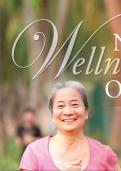Exam (elaborations)
Test Bank For Miller's Nursing for Wellness in Older Adults, Canadian Edition Sandra P. Hirst.
- Institution
- Miller\'s Nursing For Wellness In Older Adults
Test Bank For Miller's Nursing for Wellness in Older Adults, Canadian Edition Sandra P. Hirst.
[Show more]



